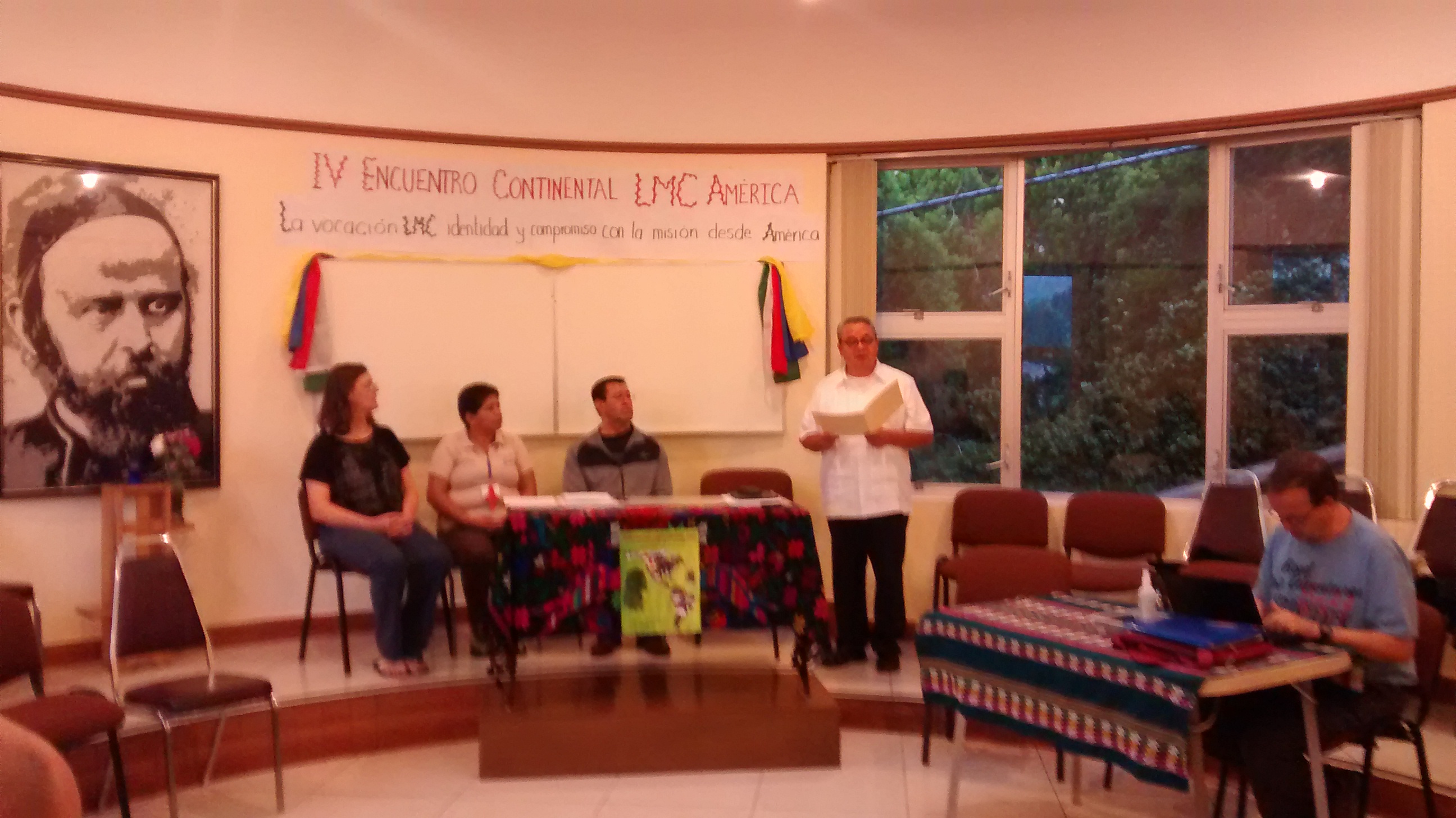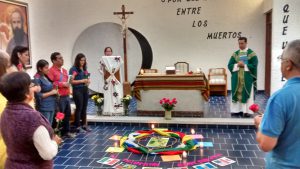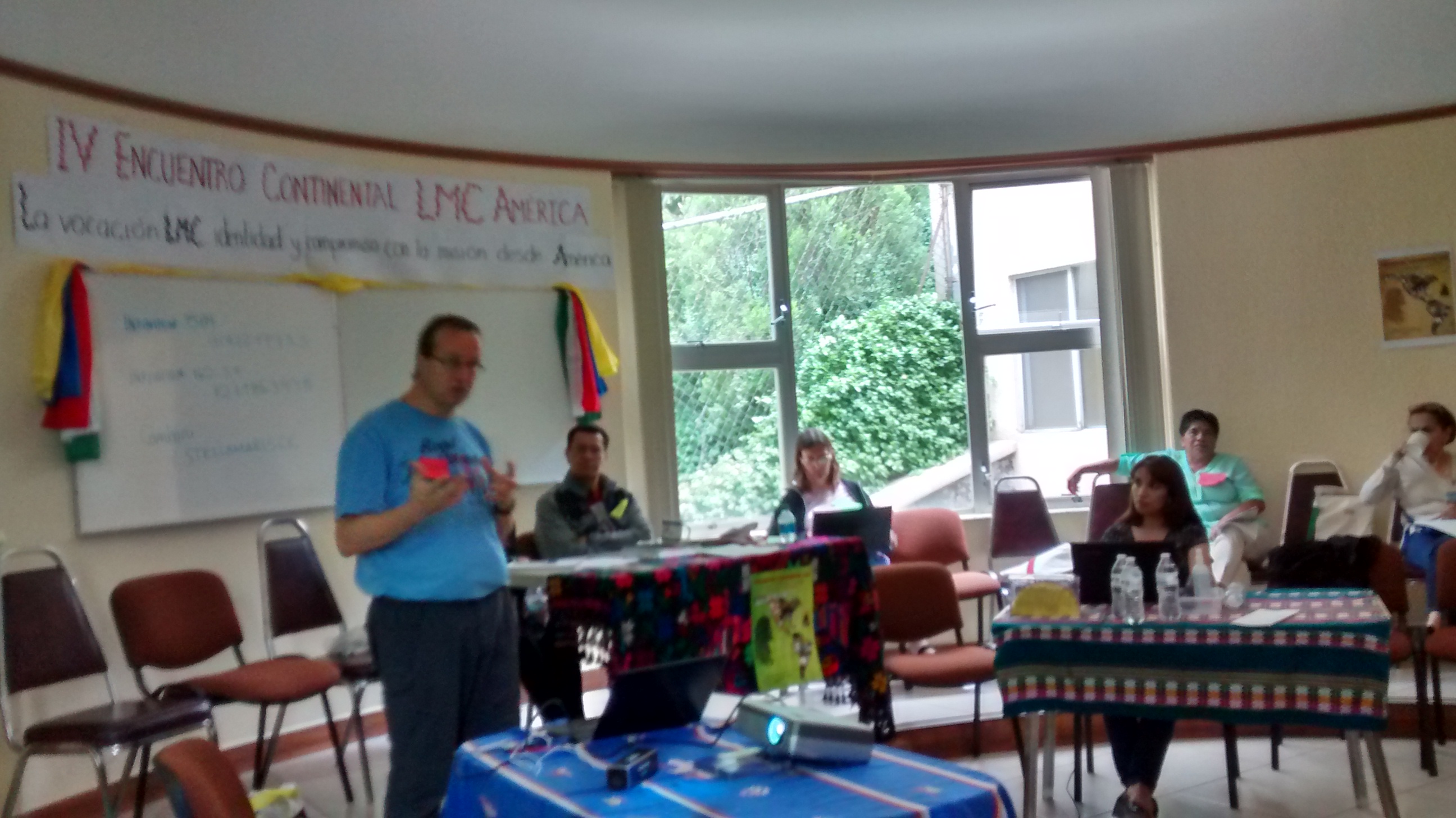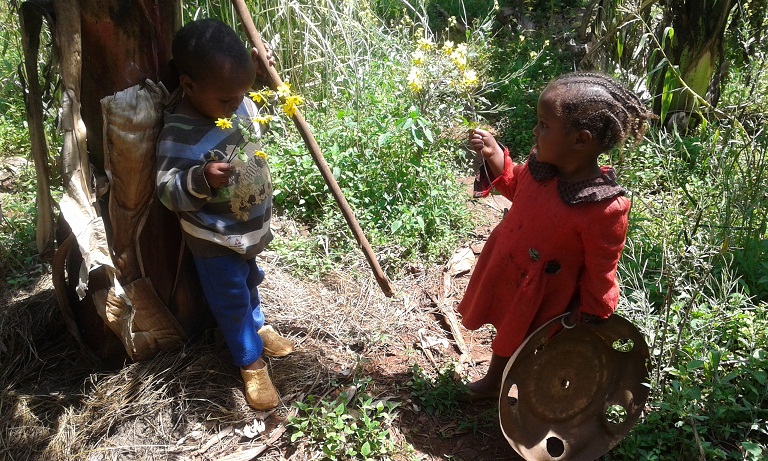Our CLM’s Gathering began Sunday 18th with the presentation by the Continental committee and by Father Erasmus, Provincial Comboni Missionary in Mexico. Then we had a very original Dynamic directed by Leticia in order to learn more about each other as a group. We then assigned group activities and practical responsibilities for these remaining days. We started Monday with a very colorful mass that the Latino missionaries organized. The Eucharist is the center and force of all missionaries, this was presented through words and gestures in the offerings that were presented.
The activities of the morning were marked by the memory of our previous meetings and our commitments that were made especially in the meeting in Guatemala, which served to remind us of our lay community and our commitment to it. We reviewed the agreements previously made in order to live better our commitments in our various countries. Achievements in these past years have been remarkable, especially in the area of communication. Nevertheless, more commitment of our CLM and provincials are required in order to ensure a good follow up in all provinces. The Central Committee updated and specified what their function and role are within the International movement. Alberto, Coordinator of the Central Committee exposed its operation and clearly presented and reminded us of the various agreements that had been made by the different Continental Assemblies in a very concise and clear manner leaving no room for questions. In the Maia Assembly, the base of its performance was set, and it recalls for much coordination between the different agents within the mission of the CLM’s.
The CLM are present in 20 countries. Today we have various challenges as CLM in different continents. One of the challenges is that is necessary to clarify our relationship within the MCCJ at all levels. Another aspect that was emphasized on was the economic contribution that each member and country can give in order to help facilitate economic resources to those who have less. It is necessary for all MCCJ and Provincials to have the capacity to accept and collaborate with the CLM in those countries. We have major challenges today as a group in various levels and it is important to be conscience of them and be more coherent.
Alberto de la Portilla recalls the challenges
- Consolidate those groups (CLM) in our countries and promote vocations of same.
- Involve everyone in a systematic way so that we all are an International CLM family.
- Achieve a smooth communication process and be more corresponding in the decision making.
- Carry out the challenges and commitments of Maia.
- Enable a stability in the international coordination.
- Enhance further knowledge and background that will help us grow.
- Procure a style of Comboni family that Comboni would have liked.
The reflection of the evening was to care for the creation of the vocation as laity in the church and to protect it, this was presented by Cristina from the Central Committee. The Comboni Lay Missionaries are called to continue the Kind of Life that Jesus led as well as Comboni. We are also called to continue and with the making of Missionary animation. In the afternoon each country presents its responses according to the previous questionnaire that was sent to each coordinator: Columbia, Guatemala, Mexico, Peru, NAP, Brazil and in the evening Peru presents with two very interesting testimonies by Arequipa and Trujillo.
(Fr. Valentín García and Yessenia de la O)











